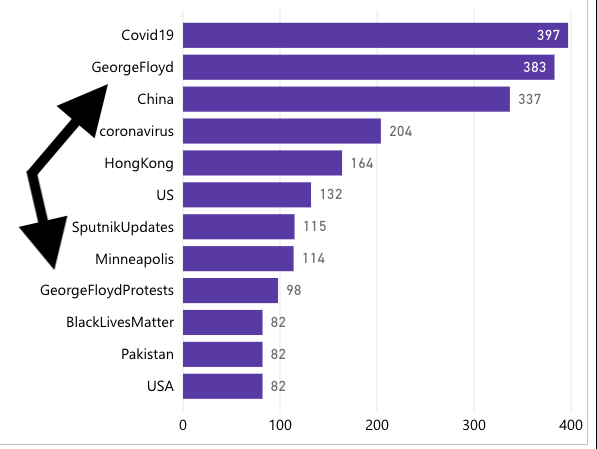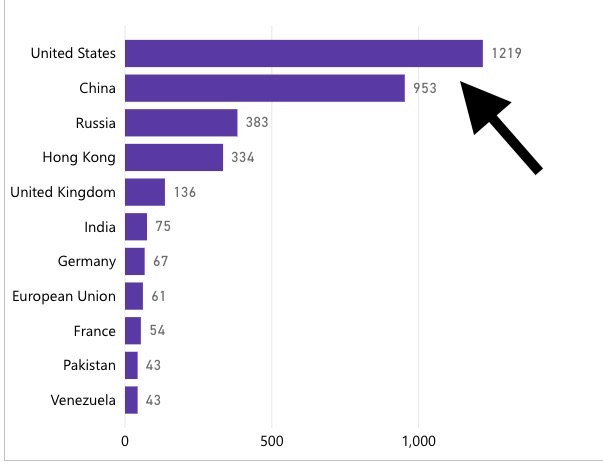
A Spanish-language @Facebook page, Alerta Politica, attacked Trump. Another, Politica Veraz, went after Biden. Both had bigger footprints on FB than @BostonGlobe. But behind the partisan news, both pages were run by the same individual politico.com/news/2020/10/1… 



Not exactly the type of story that I thought I would be doing ahead of November's election. But since the summer, I had noticed these Spanish-language FB pages were getting massive engagement on FB. I started to dig around.
Couple of things first stood out. The FB pages kinda looked the same in style. They mirrored each other in content, too. Just one was pro-Biden, the other was pro-Trump. Neither page provided much transparency about who was running them.
So I took to the interwebs. First up, the FB pages' associated websites. Interestingly, they were all hosted on the same server. Hmmm. They shared the same Google ad IDs. Double hmmm. The websites' had similar designs & sold merchandise. Triple hmmm. 



So yeah, something weird. And as I looked at how these FB pages performed, they rocked up some major engagement. We're talking in the top 20 of Spanish-language posts about Biden/Trump. More engagement than CNN en Espanol/Univision, in some instances.
Love me a CrowdTangle chart. This is a comparison of both FB pages' FB engagements, since July, for likes, comments, shares, etc compared to the @BostonGlobe. Not exact science, but you can see these weren't small footprints we're talking about. 

So then it gets weird. I linked these FB pages to an individual in White Plains, NY. I'm not naming him here, though the evidence is pretty overwhelming. This week, after I contacted him & the pages, his personal FB page, the political pages & websites were all taken down. Hmm.
It gets weird, too. The individual used the right-wing FB page & associated website to push eyeballs to his (wait for it) separate coffee bean selling company. Yup, and you thought 2020 couldn't get even weird. It all started to add up.
I can't 100% prove what the intentions of this operation was. But multiple experts who reviewed my worked pointed to it being a clickbait operation, aka to drive eyeballs to websites full of advertising. It's unlikely it was out to change people's minds.
What's interesting is that it targeted Latinos, a community that has seen its fair share of misinformation, like most Americans, in the build up to November election. It's also an area that is, arguably, undercovered from a misinfo perpective (con toda la humildad)
So what we had here, until the operation went dark yesterday, was two opposing FB pages pumping out reams of politicized news, driving people to ad-filled websites, that were all run by the same individual.
We are 3 weeks before the election. FB has taken a lot of steps to reduce clickbait, suppress misinformation & mitigate foreign interference.
But I found this operation, frankly, with little expertise in forensic internet sleuthing. What else, I suggest, is still out there?
But I found this operation, frankly, with little expertise in forensic internet sleuthing. What else, I suggest, is still out there?
Lots more details in the story. More stories to come in coming days. Giddy up.
Rant over. Thoughts appreciated.
• • •
Missing some Tweet in this thread? You can try to
force a refresh




